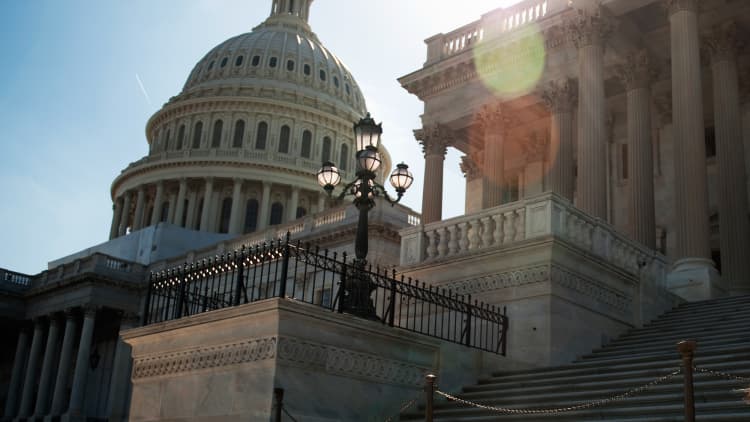Google has reached a settlement with state attorneys general over outside consultants hired to work on the states' antitrust investigation, CNBC has learned.
The settlement means that potential roadblocks to the states' probe may be cleared for now, allowing the attorneys general to continue digging into Google's business. A delay to the investigation could hinder the states' ability to uncover important information about Google's competitive practices. Though antitrust investigations are notoriously slow and fact-intensive, the rapid pace of change in the tech industry makes it especially important for investigators to move swiftly in order to impose remedies before they are no longer relevant.
Texas is leading the the probe into Google's digital advertising business, which is backed by 49 other attorneys general from U.S. states and territories. The investigation is expanding into other areas of Google's business as well, including search and Android, CNBC previously reported.
Google had filed a motion in October asking Texas Attorney General Ken Paxton not to share confidential business information with outside consultants, citing concerns with two people hired to help with the probe based on past work for competitors. The settlement, which is pending in a Texas court, would allow the consultants to continue to advise the states' investigation but also impose certain confidentiality restrictions on them, a source told CNBC.
The pending settlement, which was reviewed by CNBC, allows Google to retroactively designate materials it's handed over to the investigation as a trade secret or confidential. Consultants, like those Google had contested, will be able to review material Google hands over but cannot disclose anything deemed a trade secret or confidential to third-parties without Google's consent. The agreement also allows Google to retract any information it turns over that is subject to attorney-client privilege.
The states will still be able to contest Google's designation of confidentiality or trade secrets under the agreement and can use third-party vendors, like document review platforms, to assist its probe.
"We're pleased that the AG has agreed to restrictions about how it handles our confidential business information. But we remain concerned with the irregular way this investigation is proceeding, including unusual arrangements with advisers who work for our rivals and vocal critics," a Google spokesperson said in a statement.
The Texas attorney general's office did not provide a statement on the settlement.
Google had contested two consultants hired by Paxton's office. Google complained of Cristina Caffarra's past work for Russian search company Yandex, Microsoft and News Corp, which is a frequent critic of the company. The company also contested Eugene Burrus, who previously worked as assistant general counsel at Microsoft and represented clients in antitrust cases against Google.
Paxton told CNBC earlier this month that Google's actions were "pushing us towards a fight."
"We don't necessarily want one. But we won't back off if they're not going to cooperate," he said. Paxton also expressed concern over letting the investigation "drag out."
"We don't want the technology to pass us by so that by the time we get to any kind of resolution, it doesn't matter," he said at the time.
WATCH: How US antitrust law works, and what it means for Big Tech



